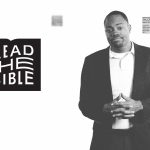This year marks the 50th anniversary of Martin Luther King Jr.’s “I’ve Been to the Mountaintop” speech, delivered the night before his assassination on the balcony of the Lorraine Motel in Memphis, Tennessee. Having returned to Memphis to support 1,300 black sanitation workers in their efforts to acquire better wages and safer working conditions from the city, King’s address that night represents his final, and perhaps most mature, reflections on the movement and his own place within it.
Over the next few articles, I plan to analyze a few of the central themes King broached that night—and their ongoing relevance for the church today.
Two Forms of Bondage
First, we’ll consider the social entailments of the Christian gospel. King often faced the widespread belief that efforts for racial and economic justice were at best an aside from gospel ministry, and at worst a distraction or even contradiction to gospel ministry. That night in Memphis, however, King was especially encouraged to see a number of prominent pastors publicly standing alongside the sanitation workers. As he gazed at the crowd, he explained:
What’s beautiful to me is to see all of these ministers of the gospel . . . . Who is it that is supposed to articulate the longings and aspirations of the people more than the preacher? Somewhere the preacher must have a kind of fire shut up in his bones, and whenever injustice is around he must tell it. Somehow the preacher must be an Amos, who said, “When God speaks, who can but prophesy?” Again with Amos, “Let justice roll down like waters and righteousness like a mighty stream.”
Without denying the gospel’s power to save from the punishment of sin, King insisted that a full-orbed gospel ministry must also address the presence and power of sin wherever it exists. For King this was vital to the liberation Christ proclaimed. To King’s mind, the most tragic part of racism was the way it scars the souls of the oppressed by making them feel inherently “inferior” and the souls of the oppressors by making them feel inherently “superior”—both forms of spiritual bondage. Gospel ministry must declare Christ’s freedom from this bondage, and assert the sinfulness of the systems that perpetuate this longstanding and deeply entrenched lie.
King continued:
It’s all right to talk about streets flowing with milk and honey, but God has commanded us to be concerned about the slums down here and his children who can’t eat three square meals a day. It’s all right to talk about the new Jerusalem, but one day God’s preacher must talk about the new New York, the new Atlanta, the new Philadelphia, the new Los Angeles, the new Memphis, Tennessee.
King did not deny the importance of preaching about the glories of heaven. In fact, he reflected deeply on how contemporary societal patters measured against the eternal patterns revealed in God’s Word. But rather than making heavenly salvation a tool to justify ignoring or even perpetuating unjust conditions on earth, King insisted that the church must apply its glorious heavenly vision to the earthly civil structures it encounters. The rolling tide of justice in the eschatological vision makes a claim on how Christians engage our contemporary world. Biblical passages like Micah 4 and Isaiah 2 set forth eschatological visions of social justice precisely aimed at calling, guiding, and empowering God’s people to live more justly in the world.
Ethical Transformation
This is an amazing call to live as sojourners looking and laboring toward that glorious day when, by the power of Christ, these social conditions become a reality. Even as they recovered the gospel, Reformers like John Calvin understood that faithful gospel ministry leads to ethical transformation. Calvin explained:
Though the gospel is at this day purely preached among us, when yet we consider how little progress we make in brotherly love, we ought justly to be ashamed of our indolence. God proclaims daily that he is reconciled to us in his Son; Christ testifies, that he is our peace with God, that he renders him propitious to us, for this end, that we may live as brethren together.
Despite these historic patterns, many modern evangelicals tend to be uneasy about connecting the gospel with social ethics. They rightly recognize the gospel is about what God has done for us in Christ, and ethics is about how the redeemed respond to that saving work in obedience to God’s law. But they sometimes speak as if any emphasis on the latter is legalistic. King’s insistence that gospel ministry has a social claim, however, helps us remember that the Scriptures speak strongly about not only what God has done for us (justification), but also what he’s doing in us (sanctification). Alongside justification, Christ has freed us from the bondage of sin to a new life of righteousness empowered by the Spirit of God.
Calvin scholar Matthew Tuininga summarizes this point well:
Does [the Lord] only speak of the forgiveness of individuals, or does he describe the way in which Christ establishes the church as a new humanity, a new community, a new social reality characterized by love, justice, compassion, forgiveness, reconciliation, and peace? Does he leave Christians to act within fundamental social institutions, such as marriage, the family, and the master-slave relationship, as was customary in pagan antiquity, or does he call Christians to be transformed according to the mind and example of Christ in the way they love and serve one another, to the point of self-sacrifice?
As Tuininga observes, “Individualism is no orthodox corrective to the theological liberalism of the past.” He is exactly right. Evangelicals’ aversion to the historic errors of the social gospel movement can tempt them to slide into another error—a hyperindividualism that neglects the gospel’s social claims altogether. This is precisely where King’s life and legacy challenge us to become more biblically faithful.
It’s difficult to name a contemporary theologian with a more consistent social ethic of brotherly love than Martin Luther King Jr. Against great odds, he consistently reminded the church and the world that the gospel “trains us to renounce ungodliness” (Titus 2:12)—including the ungodliness of racism and economic injustice. Although evangelicals may disagree with King on some important aspects of Christian doctrine, they can still learn something valuable from him on this point.
After 50 years, King’s “Mountaintop” speech still has something powerful and biblical to teach us. Prayerfully, we will have the ears to hear it and the courage and compassion to apply it.
Is there enough evidence for us to believe the Gospels?
 In an age of faith deconstruction and skepticism about the Bible’s authority, it’s common to hear claims that the Gospels are unreliable propaganda. And if the Gospels are shown to be historically unreliable, the whole foundation of Christianity begins to crumble.
In an age of faith deconstruction and skepticism about the Bible’s authority, it’s common to hear claims that the Gospels are unreliable propaganda. And if the Gospels are shown to be historically unreliable, the whole foundation of Christianity begins to crumble.



































